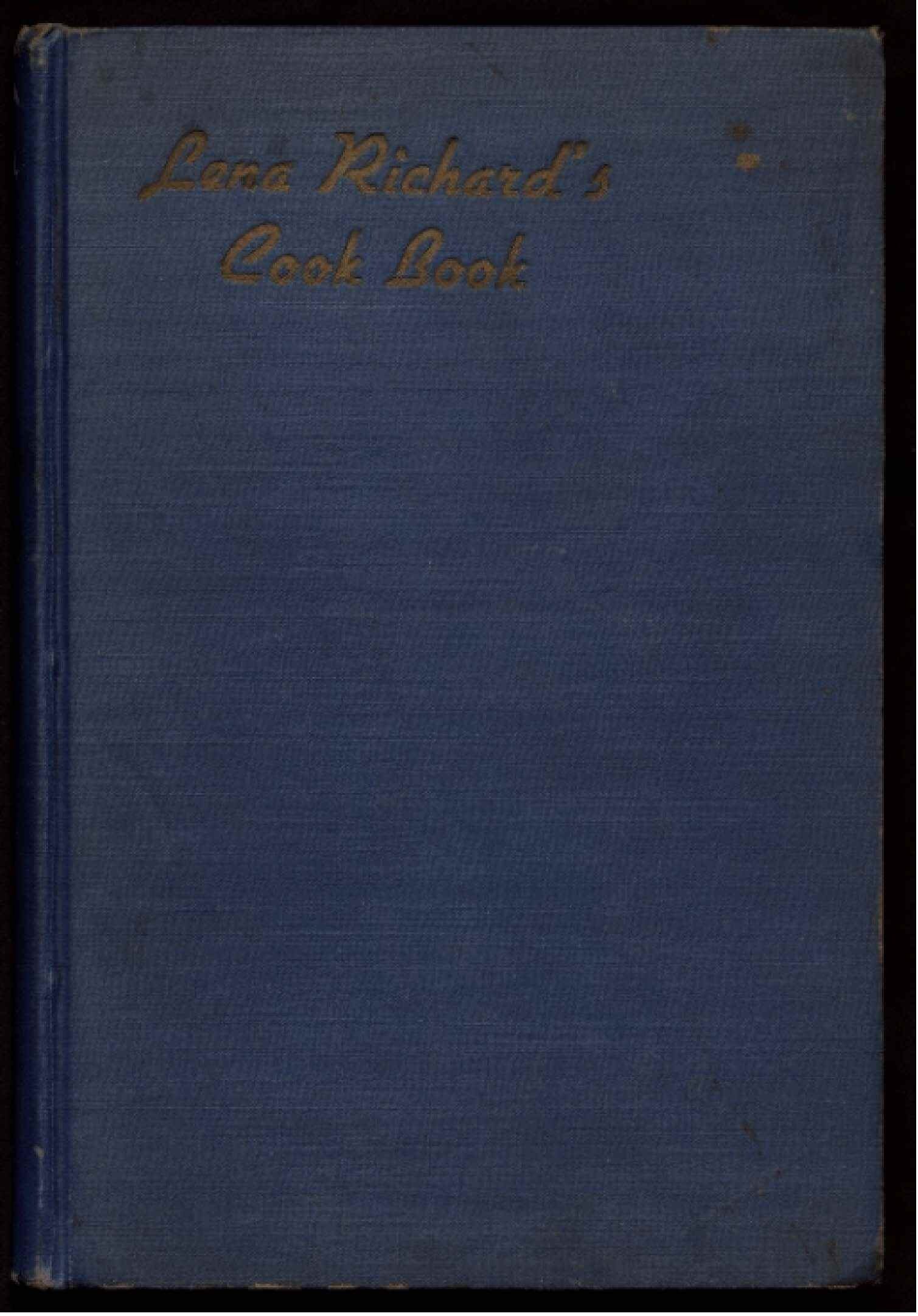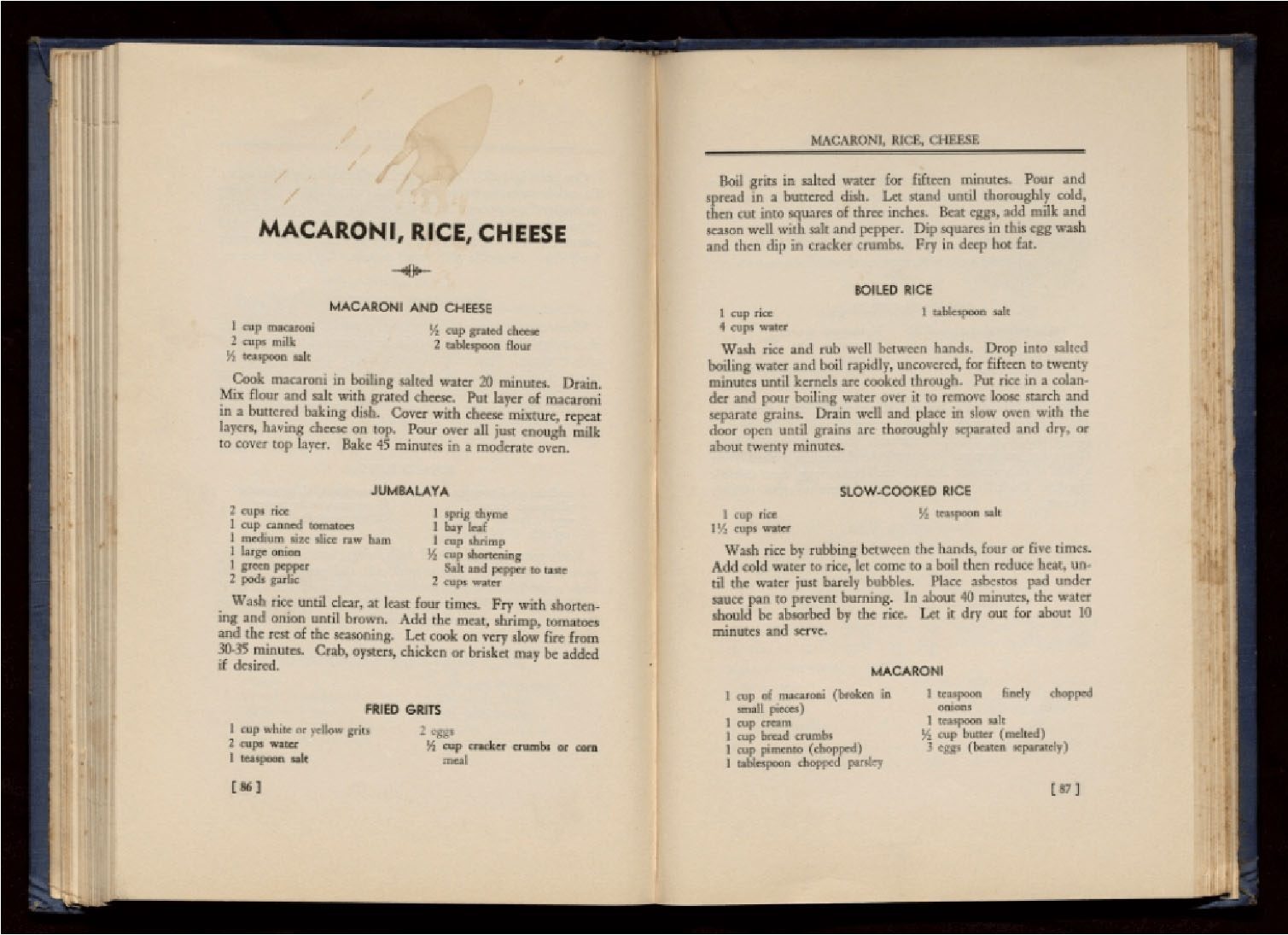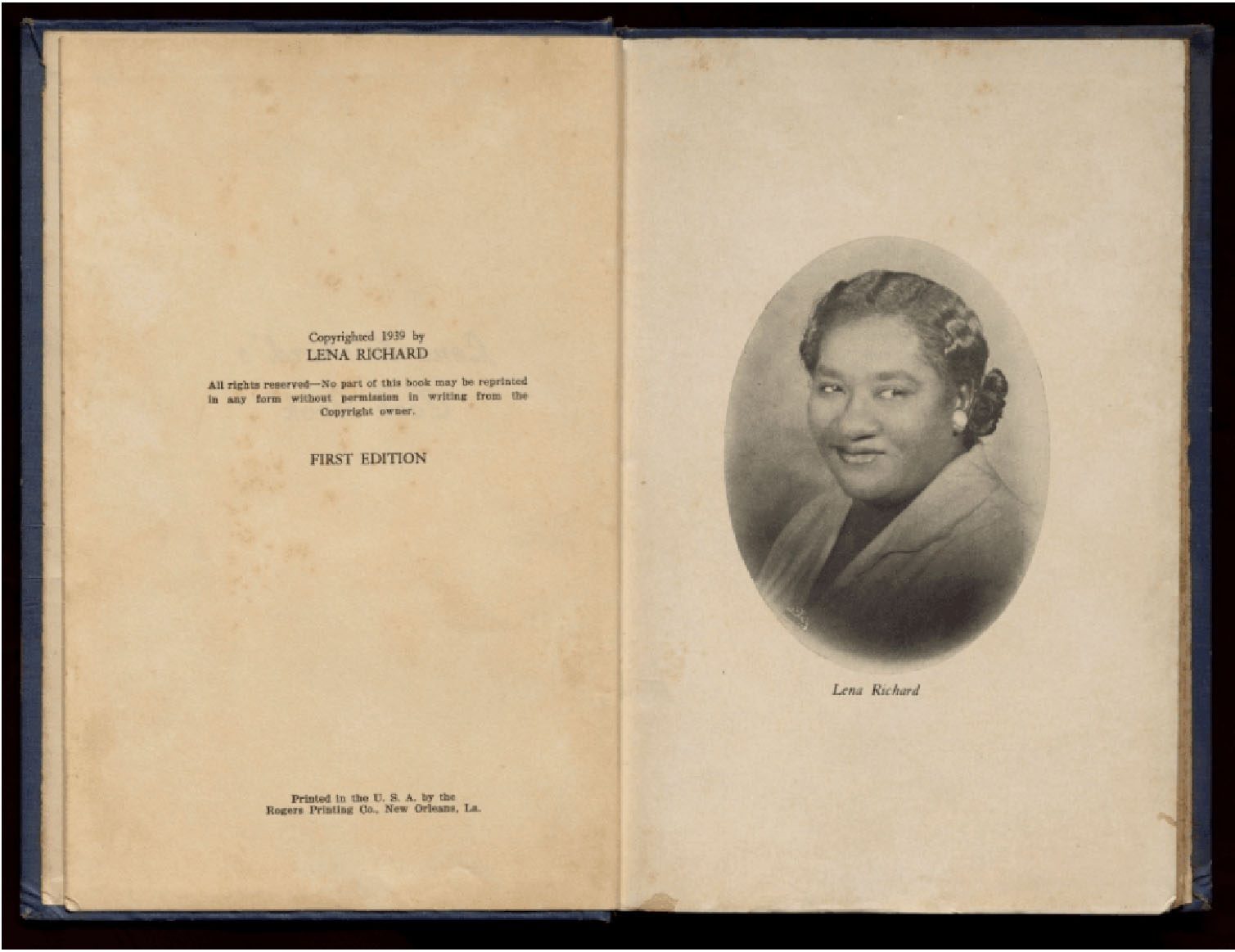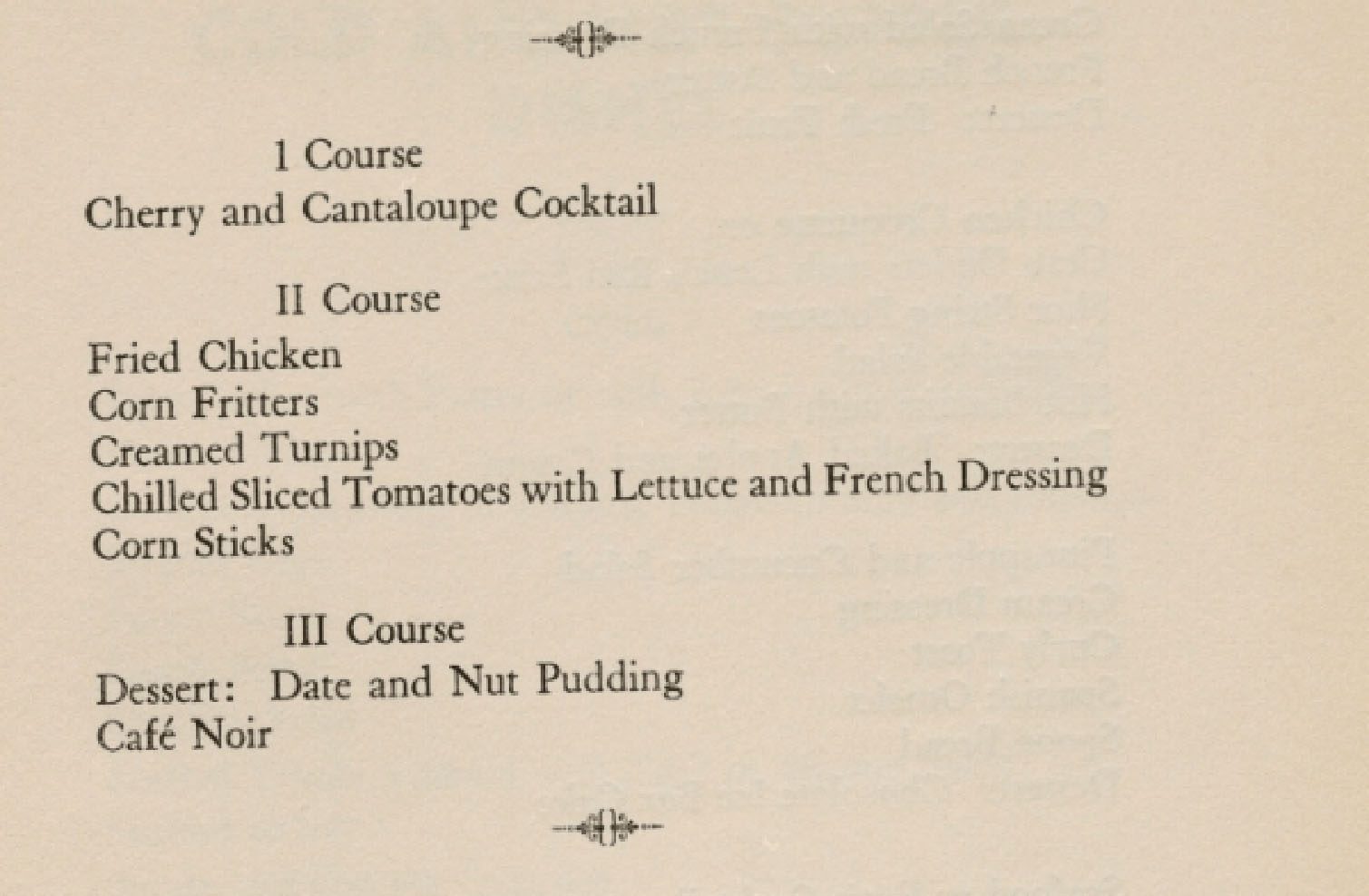Learning from the best: Lena Richard’s Creole cookbook
Cherry and cantaloupe cocktail. Lobster bisque. Baked stuffed oysters. Macaroni cheese. Courtbouillon. Chocolate waffles...
Several editions of Lena Richard’s Cookbook appear in our Food and Drink in History resource; a platform which spans centuries and offers users a unique lens through which to explore food histories, cultures and traditions from around the globe. Richard’s cookbook is dedicated to one of the most fascinating and varied cuisines of the United States – Louisiana Creole.
It’s stuffed full of deep flavours and rich sauces, as well as plenty of macaroni, rice and bread recipes for fellow carb enthusiasts. Richard even wrote the cookbook to help keep it simple:

RGS Lena Richard's cookbook, 1939, © Content compilation © 2020, by the Michigan State University. All rights reserved.
This book is an attempt to put the basic facts concerning the art of cooking into a form that may be easily understood by the youngest housewife as well as the most experienced chef.
Creole is an incredibly tempting cuisine – I even tried Richard’s recipe for jambalaya (can confirm: delicious, and easy to do). It looks like I’m not the only one – the recipe is on a well-thumbed page inside the copy we digitised for Food and Drink in History, with evidence of a spill at the top. Though maybe that has more to do with the macaroni cheese recipe?

RGS Lena Richard's cookbook, 1939, © Content compilation © 2020, by the Michigan State University. All rights reserved.
Louisiana Creole cuisine is the result of a multitude of cultural influences. It primarily combines culinary traditions of African, French and Native American cuisines, though influences from Europe, Latin America and the Caribbean can also be found within the recipes. Creole cuisine was born in New Orleans, and Creole heritage is an integral part of New Orleans's history and culture.
Creole cuisine developed over centuries, with deep traditions and modern trends, that Richard also wanted to reflect in her recipes, stating that her book gives “the modern recipes as well as those used for generations in the South, the home of the famous Creole cooks”. Cookbooks focusing on Creole food were not new, but Richard’s book was important – it was the first cookbook on New Orleans Creole cuisine to be published by an African American.
Given the influence of African foodways on Creole traditions, her publication was an important act of reclaiming heritage that had been regularly viewed as a primarily white European-influenced cuisine. Richard had to self-publish her work, and this digitised copy is a first-edition example of this endeavour. The popularity of the title eventually caught the attention of Houghton Mifflin; you can find subsequent reprints of Richard’s New Orleans Cook Book in Food and Drink in History.

RGS Lena Richard's cook book, 1939, © Content compilation © 2020, by the Michigan State University. All rights reserved.
Lena Richard is a fascinating figure with the sort of CV that exhausts even the most industrious. Richard had boundless energy, operating in a time and space hostile to African American success, to share and teach about the food of her community. Richard was highly trained – having attended the Boston Cooking School – and dedicated to passing on those skills at cooking schools she founded in 1937.
Richard also tapped into lucrative food trends, starting up a frozen foods business in 1938, taking advantage of the growing numbers of families incorporating freezers into their homes. After the success of her cookbook, Richard opened several successful restaurants and a catering company and broke boundaries once again by becoming the first black woman to host her own TV show in 1949.
Aired on New Orleans’ WDSU-TV, Richard’s thirty-minute show was dedicated to teaching all things Creole food. Lena Richard was a trailblazer, and a savvy entrepreneur committed to the wellbeing and heritage of her community.
All this as well as being an exceptionally talented chef and educator, passionate about Creole cuisine. I’ll finish this blog with one of Richard’s example menus for informal suppers, and let you know if I give any a try…

RGS Lena Richard's cookbook, 1939, © Content compilation © 2020, by the Michigan State University. All rights reserved.
Food and Drink in History is out now. For more information on this resource, including free trial access and price enquiries, please email us at info@amdigital.co.uk.
Recent posts

The blog highlights American Committee on Africa, module II's rich documentation of anti-apartheid activism, focusing on the National Peace Accord, global solidarity, and student-led divestment campaigns. It explores the pivotal role of universities, protests, and public education in pressuring institutions to divest from apartheid, shaping global attitudes toward social justice and reform.

This blog examines how primary sources can be used to trace the impact of young voices on society, particularly during pivotal voting reforms in the UK and the US. Explore materials that reveal insights into youth activism, intergenerational gaps, and societal perceptions, highlighting their interdisciplinary value for studying youth culture, activism, and girlhood across history.
